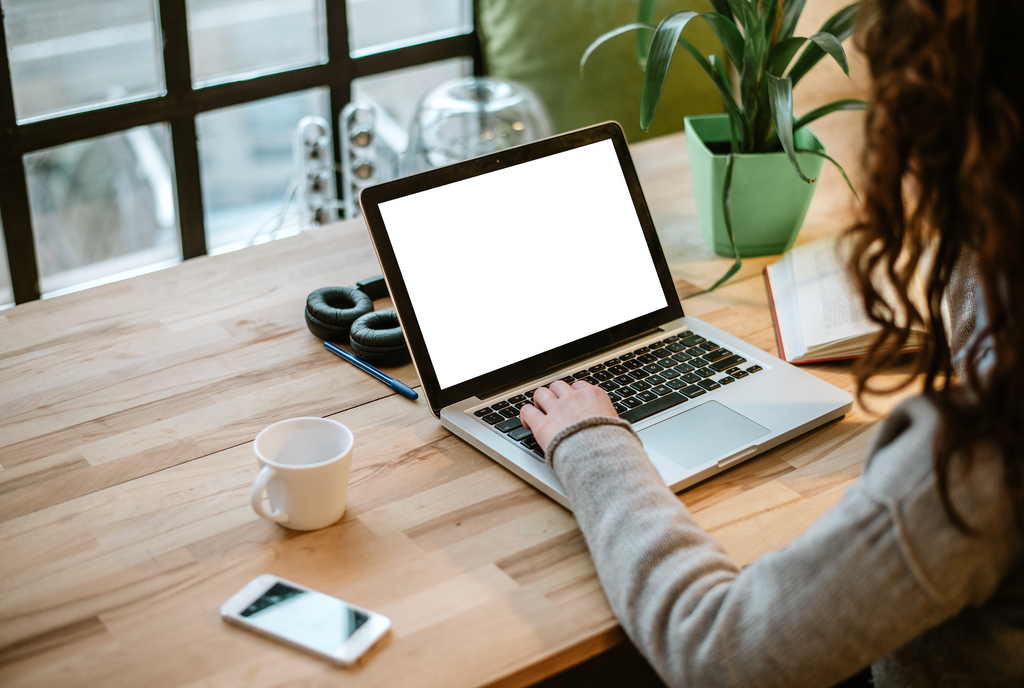Procrastination is a trap many of us have fallen into — you know you have certain items on your to-do list that need to get accomplished, but instead find yourself scrolling on your phone, taking yet another coffee break, or frankly doing anything but what you're supposed to be doing. Well, we're here to encourage you to feel motivated and get on track! Keep reading for 11 expert-approved tips to help boost productivity and manage your tasks more effectively.
1. Move your body in the morning
Before you even begin tackling your day, Amber Rosenberg, a life, career and executive coach with over 20 years' experience, suggests getting in a little exercise. "Ahead of sitting down for work, go for a quick walk around the block, do few simple stretches, or try a more involved workout routine — exercise gets you out of your head and allows you to start your day feeling more present," she tells Lively.

2. Jot down tasks in priority order
Next up, Elise Dean, Creative Director and Life Coach of Blush Online Life Coaching, recommends writing down what you need to do and prioritizing the tasks in order, noting that research has shown that when we jot things down, we're much more likely to accomplish them. She adds that when it comes to those big to-do's which might seem daunting, set yourself up for success by breaking them down into smaller, more manageable tasks.
3. Create a "won't" list
On the topic of lists, Gretchen Hydo, master certified coach, makes an interesting suggestion — we've all heard of the to-do list, but how about the "won't" list? "The 'won't' list is essentially a comprehensive list of things that you know in your heart you have no intention of doing," she explains. "Most people spend a lot of time dreading certain tasks and end up putting them off until the very last second, all the while thinking about the other projects and responsibilities they aren't doing." She adds that giving yourself permission to not do certain things frees up your mind to do tasks that you are more effective at doing.
However, she does point out that there are some items that you simply can't put on a 'won't' list. "When you have a task that you're really procrastinating on, ask yourself what you are afraid of. Is it failure? Not being good enough? Not doing it right? That you don't know how? Once you have your answer, you can confront it and ask yourself if the outcome you’re dreading is real or imagined."
4. Leverage your energy
We love this tip from Rosenberg about making the most of your energy. "Schedule the most important to-do's (or those items you tend to procrastinate) for the time of day when you have the most energy," she says. "Once you complete that most important item, anything else you accomplish during the day feels like icing on the cake."
Related Articles
5. Set a timer
Another easy suggestion to help stop procrastination in its tracks is to set a timer. "For activities like cleaning or decluttering, set a timer and commit to a short period of time for the job, like fifteen or thirty minutes," notes Allison Task, career and life coach. "Put your screens away and allow for no interruptions — chances are, once you're focused and active, you'll choose to extend the time because it doesn't take much longer to complete the task at hand."
6. Minimize distractions
With many of us still working remotely, minimizing distractions is key to tackling your responsibilities. "Turn off the TV, put your phone down, stop petting your dog — distractions are a huge hurdle with procrastination," says Dean. "If you can figure out what your typical distractions are — and then avoid them — you’ll be ready to crush that to-do list."
7. Schedule blocks to manage email
We all know it's fairly easy for your email inbox to get a tad out of control. To get — and stay — ahead of it, Rosenberg recommends scheduling specific half-hour increments to manage email throughout the day. "As you open each email, you have a choice: Do you delete, unsubscribe, file (in folders for each project, client, customer, staff member, admin, etc.), respond now or respond later?" she says. "The only items in your inbox will be emails for which you need to respond later because you don't have the info or need more time to craft a response."

8. Make time for non-work activities
Carve out moments that don't involve work. "When planning your daily schedule, set aside intentional time for fun throughout the workday," says Kyle Elliott, MPA, CHES, and Founder and Career Coach behind CaffeinatedKyle.com. "Integrate energy-boosting activities throughout your schedule to keep you motivated and productive."
9. Create accountability
Dean tells Lively that accountability will be your best friend in avoiding procrastination — start setting up calendar meetings with yourself as a reminder to get things done, or perhaps find a friend who can hold you accountable. Task seconds that getting someone else involved can be helpful, especially when it comes to something that you don't want to do (and perhaps don't really have to do, like tackling a difficult conversation.) "Make a commitment to someone else that you will do this thing you've been putting off — you might procrastinate on a commitment to yourself; it's much harder to do to a friend," she says.
10. Reward yourself
Treat yourself for being effective and conquering items on your to-do list. "Consider implementing a reward system for completing projects and tasks," Elliott tells Lively. "This may include something like a phone call with family, a Netflix show or an iced latte at your favorite coffee shop — be sure to reward yourself often for your hard work!"
11. Create end-of-day rituals
Finally, ending the day on the right foot is equally important as starting the day with a positive mindset. Once the workday has concluded and your laptop is closed, Rosenberg suggests creating a consistent ritual which might include activities like lighting a candle, taking a walk (or some other form of exercise), meditating, etc. You may also want to consider coming up with a "pre-bedtime" routine. "Lay out your exercise clothes for the next morning (or sleep in them if they're comfortable); put your devices to bed in a room that's not your bedroom (buy a cheap alarm clock); brush your teeth and wash your face; read or journal; or perhaps listen to relaxing music," Rosenberg says.




















